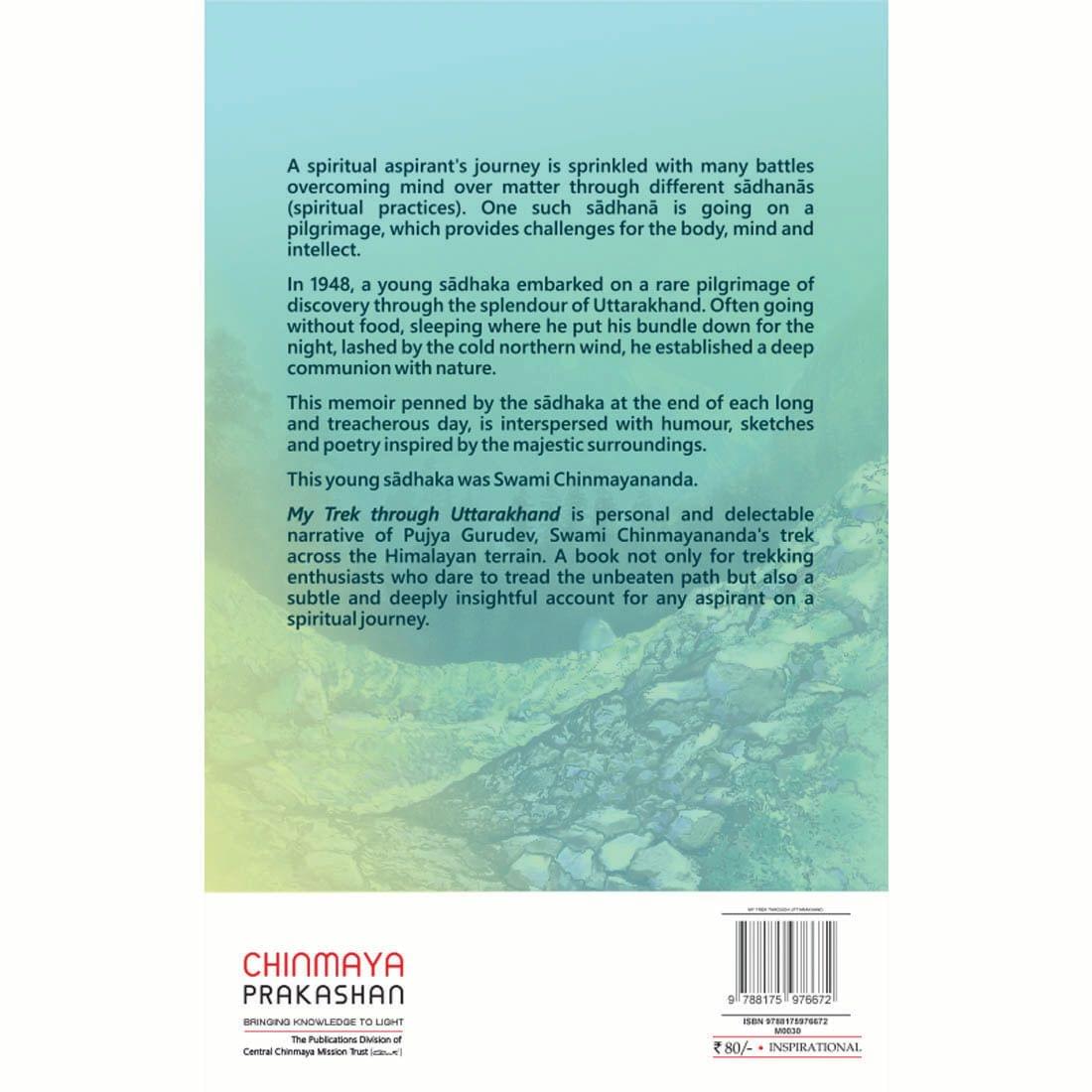Swami Chinmayananda
My Trek through Uttarakhand is backordered and will ship as soon as it is back in stock.
Couldn't load pickup availability
Make a bulk order enquiry
Product Description

Inspiring Right Living

Rooted in Wisdom

An Offering of Love

Product of Bharat
Product Description
A spiritual aspirant's journey is sprinkled with many battles overcoming mind over matter through different sadhanas (spiritual practices). One such sadhana is going on a pilgrimage, which provides challenges for the body, mind and intellect.
In 1948, a young sadhaka embarked on a rare pilgrimage of discovery through the splendour of Uttarakhand. Often going without food, sleeping where he puts his bundle down for the night, lashed by the cold northern wind, he established a deep communion with nature.
The memoir penned by the sadhaka at the end of each long treacherous day, is interspersed with humour, sketches and poetry inspired by the majestic surroundings.
This young sadhaka was Swami Chinmayananda.
My Trek through Uttarakhand is personal and delectable narrative of Pujya Gurudev Swami Chinmayananda's trek across the Himalayan terrain. A book not only for trekking enthusiasts who dare to tread the unbeaten path but also a subtle and deeply insightful account for any aspirant on a spiritual journey.














